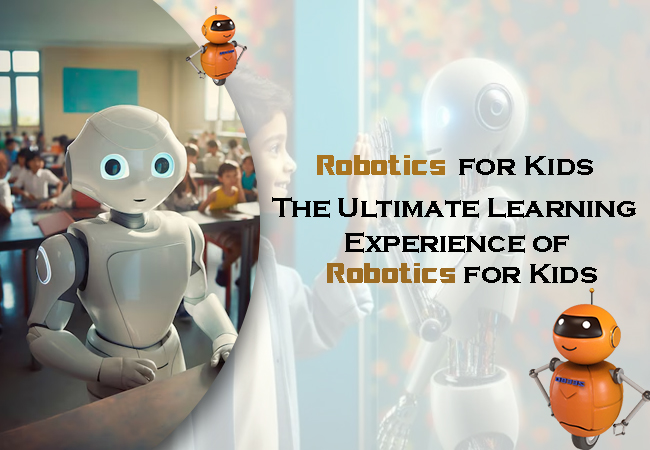Robotics for Kids: The Ultimate Learning Experience of Robotics for Kids

Robotics is all set to alter how kids are taming technology. It was also during this time, when innovation is driving growth, that the introduction of kids to robotics will prove to be a game-changer. Robotics for kids offers more than a fun hobby. It is an enriching experience that enhances critical thinking, problem-solving, and creativity. The following guest post looks at why robotics is an important thing for kids to learn, the diversity of skill-building opportunities they offer, and what makes them the ultimate learning adventure.
Understanding Robotics for Kids
It involves Robotics for kids and related technologies as a more hands-on learning process. Unlike traditional approaches to learning, this educational model throws kids right into the deepest swimming pools of technology, programming, and engineering. While building and controlling the robots, children will not only learn the technical side but gain an extensive comprehension of concepts like physics, mathematics, and computer science. This type of learning is gaining speed in schools and other educational institutions worldwide. Schools and extracurricular programs are incorporating robotics into the learning setting as a means of infusing a love of learning in students for STEM subjects. Robotics brings a new dimension to the process of learning. It makes learning dynamic, interactive, and highly engaging.
Problem-Solving Skills Development
Problem-solving skills have been one of the major benefits touted for robotics for children. As kids construct robots, they surely will come across different kinds of problems that require critical thinking and innovative solutions. They put their idea to test and perfect the design based on their results. This iterative process inculcates the value of perseverance and determination, very soon, kids learn failure is a stepping stone toward success.
The Role of Robotics Education for Kids
Robotics education for kids is one of the most critical educations that a child can get in today's world, as it prepares them for almost all the skills needed for their future jobs. As automation and artificial intelligence continue to evolve, an understanding of robotics will be one of the biggest strengths. This is a reason for giving the introduction of robotics early in their young age so that when facing their future, which depends a lot on technology, they can adapt to it more effectively.
Building Teamwork and Communication
Teamwork and collaboration are furthered in kids' robotics education. In most robotics programs, children work in teams to build, program, and test their robots. A collaborative environment compels children to express their ideas effectively, listen to others, and work together for the achievement of a common goal. These skills are very important not just in academics but also later on during their professional implementation in life.
Building Confidence and Self-Esteem
Robotics helps in building confidence. As they see the robots they have made come to life and do certain things the way they have programmed them, they develop a certain sense of accomplishment that reinforces self-esteem and instills the idea that all things are achievable through hard work and perseverance. Many programs involving robotics for kids culminate in competitions or exhibitions where the children get to show off their skills and creativity.
Nurturing a Love of Learning that Lasts a Lifetime
It can spark enthusiasm about learning that may last far beyond the time the robot has been destroyed. Robotics offers fun learning since it encourages children to play at the same time as struggling. Children are more likely to appreciate subjects related to STEM when they bring them into practical and active use. The excitement associated with building something from scratch and making it operational works as encouragement toward further learning.
Preparing for the Future
With the rapid development of technologies, the labor market puts an ever-growing demand on skills that have something to do with robotics and artificial intelligence. Introduction of Robotics Education to Kids will prepare them for future involvement in the job market, where most of the jobs deal with advanced technologies either directly or indirectly. While learning robotics, children get a head start in understanding these technologies, thus making them more adaptable and competitive in the future.
Conclusion
Robotics for kids provides a changing learning environment, far from traditional modes of learning. It gives an interactive and playful way to learn about technology, science, and engineering while building up essential life skills: problem-solving, critical thinking, teamwork, and communication. The next generation will be living in a world that is heavily dominated by technology.
Robotics for children will be an invaluable means for sparking a love of learning in them now and building up the skills needed to meet future challenges. Embracing robotics education is about more than just riding the waves of rapid technological advancement. It's about shaping a brighter, more innovative future for our children.